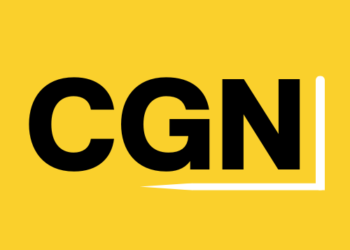Recur Club’s Rs 150 Crore Fund: A Boost for D2C Brands in Quick Commerce
Recur Club, a debt marketplace for startups and small businesses, has announced a significant initiative—a Rs 150 crore fund aimed at propelling the growth of direct-to-consumer (D2C) brands within the burgeoning quick commerce sector. This move is set to provide D2C brands with the financial muscle needed to expand inventory and bolster marketing efforts, with loan disbursements promised within a brisk seven-day timeframe.
Understanding Quick Commerce and Its Growth Trajectory
Quick commerce, characterized by rapid delivery services, is experiencing a boom in India. Eklavya Gupta, co-founder and CEO of Recur Club, highlights that this market is projected to grow at an impressive annual rate of over 25% through 2030. This growth is driven by consumer demand for speed and convenience, creating a fertile ground for D2C brands to flourish. The D2C sector itself is expected to surpass $60 billion by 2027, underscoring the increasing need for accessible debt financing options.
Tailored Financial Solutions for Diverse Business Needs
Recur Club’s debt products are crafted to cater to the unique requirements of both nascent and established companies. Businesses can secure loans ranging from Rs 50 lakh to Rs 100 crore by simply registering and linking their financial data. Over the past three years, Recur Club has disbursed more than Rs 500 crore to D2C businesses, which constitutes around 30% of its total portfolio. Notable beneficiaries include popular brands like Ustraa and Wellversed.
Strategic Growth Plans and Collaborations
This new fund is part of Recur Club’s broader strategy to invigorate Indian startups, particularly in the quick commerce domain. The company has pledged Rs 2,000 crore through its Recur Scale facility, capable of providing up to Rs 100 crore for a single startup, and an additional Rs 1,000 crore via its Recur Swift offering for micro, small, and medium enterprises (MSMEs). Collaborations with financial institutions such as InCred have already led to the disbursement of over Rs 300 crore this year for early and mid-stage startups.
Supporting "Make-in-India" Initiatives
Backed by investors like InfoEdge Ventures, Village Global, LC Nueva, and Titan Capital, Recur Club believes this fund will empower emerging D2C brands to become global players. Gupta emphasizes the goal of supporting "Make-in-India" companies, enabling them to leverage debt financing to drive innovation, meet consumer demand, and capitalize on India’s rapidly expanding quick commerce industry.
Navigating the Challenges and Opportunities
While the opportunities are vast, the quick commerce sector is not without its challenges. The need for rapid delivery can strain logistics and operational capabilities. Additionally, the competitive landscape requires brands to continuously innovate and differentiate themselves. However, with strategic financial backing, D2C brands can navigate these challenges more effectively.
The Role of Debt Financing in Scaling D2C Brands
Debt financing provides a viable alternative to equity financing, allowing brands to retain control while accessing the capital needed for growth. This is particularly crucial for D2C brands aiming to scale quickly in response to consumer demand. By offering flexible financial solutions, Recur Club is positioning itself as a key enabler in the D2C ecosystem.
Looking Ahead: The Future of Quick Commerce and D2C Brands
The quick commerce and D2C sectors are poised for exponential growth, with consumer preferences shifting towards convenience and speed. As these sectors evolve, the role of strategic financial partners like Recur Club will become increasingly important. The Rs 150 crore fund is a testament to the potential of D2C brands and the quick commerce sector in shaping the future of retail in India.
In conclusion, Recur Club’s initiative is more than just a financial offering; it’s a catalyst for growth, innovation, and transformation in the D2C and quick commerce sectors. As brands leverage this opportunity, the landscape of Indian retail is set to witness a significant shift, driven by consumer-centric strategies and robust financial support.


















